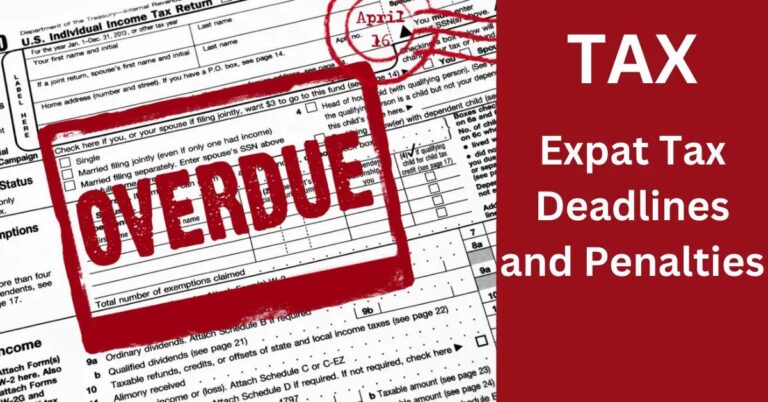TL;DR:
- Retirees face penalties for early retirement account withdrawals before age 59 (10%) and for missing RMDs by age 73 (up to 25%).
- Underpayment penalties occur if you pay too little tax during the year; estimate taxes on withdrawals accurately.
- The IRS fines inaccurate tax returns and late filings; penalties grow monthly if taxes are delayed.
- Penalty forgiveness may be available for honest errors or reasonable causes, like health issues.
- Consult tax experts to reduce or eliminate fines and stay informed on changing tax laws.
- It's crucial to report all income sources and adhere to tax deadlines to avoid penalties.
- Financial planning is essential to minimize tax costs and penalties, with advice from tax advisors.
Navigating taxes during retirement can feel like crossing a minefield. Are you secure, or are IRS penalties stalking your every withdrawal? Understanding retiree tax obligations is crucial to avoid costly mistakes. This guide uncovers penalties for early withdrawals, incorrect filings, and late submissions. Discover common slip-ups and learn how a tax advisor can save you money and stress. Transition smoothly—don't let tax penalties surprise you!
Tax Penalties for Non-Compliance: Are You at Risk?
Have you ever wondered what the tax penalty for retirees is? It's crucial to understand this since unpaid taxes can lead to costly penalties. As a retiree, you must meet specific tax obligations. If you have retirement accounts, you face penalties for withdrawing too early or not enough by year-end.
What triggers an underpayment penalty from the IRS? The answer is simple: paying too little tax during the year. Retirees can avoid these by estimating taxes on all withdrawals and other income.
If you're thinking of taking money from your retirement account early, be aware of penalties. Withdrawals before age 59½ often incur a 10% penalty. This is in addition to the regular tax on the amount withdrawn. Let your funds grow until retirement to avoid losing money to penalties.
The IRS also imposes penalties on retirees who forget required minimum distributions (RMDs). By the time you hit age 73, you're required to start taking minimum withdrawals from retirement accounts. Missing an RMD can result in penalties up to 25% of the undistributed amount.
There are penalties aimed directly at retirees, as the IRS doesn't offer special leniency. If you underpay taxes, expect penalties like everyone else. This is why understanding your retiree tax obligations is vital.
Mandatory distributions have important implications. Failing to take them can hit your finances hard. Calculate your RMDs and mark them on your calendar.
If the IRS fines you, it's often tough to escape it. That's why handling tax duties carefully pays off. Understanding retiree tax musts can spare you from heavy fines and keep you on solid ground financially.
Keep in mind that tax rules change. Stay informed or consult a financial expert to manage your obligations smartly. Prevention and knowledge could save you from future headaches.
Consequences of Incorrect Tax Filings for Retirees
Retirees like us can face fewer funds if we make tax errors. Mistakes might seem small, but they can lead to bigger problems. The IRS charges penalties for incorrect tax returns. This can impact our savings and financial peace.
One common error involves misreporting income. Sometimes, retirees overlook income sources like investment profits or pensions. Honest mistakes happen, but the IRS won't overlook them.
It’s crucial to understand the consequences of late filings. Retirees must file on time to avoid penalties. The IRS imposes penalties on late tax returns. Every month you delay, fines grow. This cuts into any fixed income you might have.
But there’s relief! The IRS might forgive penalties if certain criteria are met. Who qualifies for IRS penalty forgiveness? Some retirees may get a break if they show reasons for mistakes. Health issues or serious hardships might qualify for forgiveness. But remember, such leniency isn’t automatic.
What is the tax penalty for retirees? The IRS charges penalties based on the situation. Retirees face fines for wrong reports or late filings. These fines are percentages of owed taxes. This means more money leaves your pocket, reducing your pension or savings.
There are legal ways to tackle high penalties. Reach out to tax experts if penalties seem too much. They can guide you through this financial labyrinth. Advisors might help lower or eliminate hefty fines.
What are the penalties for retirement account issues? Withdrawals from retirement accounts can trigger fines. If you miss deadlines for required withdrawals, the IRS takes action. This can be painful for retirees depending on these funds.
As someone familiar with these concerns, it's important to stay informed. Mistakes can happen, but with the right knowledge and planning, mishaps shrink. Remember to stay updated, verify information, and seek help when needed. You can explore more on IRS’s website for helpful details on staying compliant.
Tax Penalties for Non-Compliance: Are You at Risk?
Who qualifies for IRS penalty forgiveness? It's often given to those with honest errors or due to reasonable causes. This means you might qualify if you can explain why you made a mistake. A tax expert can help you sort this out. So, when dealing with tax issues, consulting a tax advisor is wise. A tax advisor knows the rules and can help you avoid penalties. They will help you file on time and correctly. This way, you won't break the IRS rules.
How can retirees minimize tax penalties? Begin with a thoughtful plan. Get to know the laws and any changes. Regularly update your plan as the rules change. Financial planning helps control tax costs. Consider when you should withdraw from retirement accounts. Don't withdraw too early or too late. Both can lead to penalties. Your tax advisor can offer strategies to reduce risks.
One common mistake is forgetting important deadlines. Know when to file taxes and when to make payments. A mistake here can cause penalties. It's also crucial to report every source of income. Missing income can invite trouble from the IRS.
Staying ahead of tax law changes is vital. Tax laws often change, impacting retirees. Changes may affect your future income and taxes. Keep in touch with your tax advisor. They can help you adjust your plan when tax laws change. This helps you manage your tax costs and avoid new penalties.
If you think about common tax mistakes, you'll be more ready to prevent them. And by avoiding these mistakes, you keep more of your money. So, whenever in doubt, seek help. A tax advisor can mean the difference between penalties and savings. With their help, financial planning gets simpler and safer. Remember, planning ahead keeps your money safe, even when tax laws change.
Conclusion
Navigating retiree taxes can be tricky, but it doesn't have to be overwhelming. We covered common tax duties, early withdrawal penalties, and IRS repercussions retirees face. Filing mistakes can cost, but understanding and addressing errors reduces risk. Consulting a tax advisor and planning wisely helps keep penalties low. Stay informed, plan ahead, and always seek expert advice to manage your retirement taxes effectively. Remember, a proactive approach today secures a stress-free retirement tomorrow.












